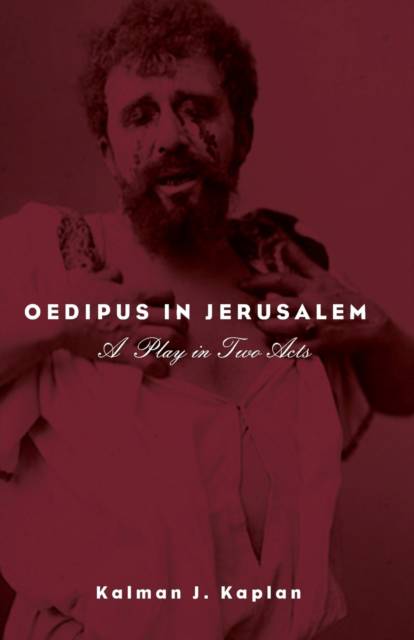
- Afhalen na 1 uur in een winkel met voorraad
- Gratis thuislevering in België vanaf € 30
- Ruim aanbod met 7 miljoen producten
- Afhalen na 1 uur in een winkel met voorraad
- Gratis thuislevering in België vanaf € 30
- Ruim aanbod met 7 miljoen producten
Zoeken
€ 24,95
+ 49 punten
Uitvoering
Omschrijving
Oedipus in Jerusalem begins with the unexpected meeting of the blinded Oedipus and the biblical prophet Nathan outside of Thebes. As the play unfolds, Nathan brings Oedipus to the Great Sanhedrin in Jerusalem for a formal trial with regard to his actions of patricide and his subsequent incest with his mother. The author of this play uses the characters and facts that exist in Oedipus Rex, the Athenian tragedy by the Greek playwright Sophocles, but employs the Sanhedrin to reach a dramatically different conclusion with implications for present times. Sophocles himself serves as accuser while Nathan defends Oedipus, who insists he is guilty. Oedipus in Jerusalem highlights the differences in Greek and Judaic worldviews, especially regarding determinism versus free will, the essence of moral behavior, and the actual concrete way in which Oedipus' "fate" unfolds. As a side note, Oedipus in Jerusalem suggests that the so-called oedipus complex, first described by Sigmund Freud, is actually somewhat of a misnomer when applied to Oedipus himself, and obscures the deeper meaning of his story.
Specificaties
Betrokkenen
- Auteur(s):
- Uitgeverij:
Inhoud
- Aantal bladzijden:
- 106
- Taal:
- Engels
Eigenschappen
- Productcode (EAN):
- 9781498229159
- Verschijningsdatum:
- 25/08/2015
- Uitvoering:
- Paperback
- Formaat:
- Trade paperback (VS)
- Afmetingen:
- 137 mm x 213 mm
- Gewicht:
- 158 g

Alleen bij Standaard Boekhandel
+ 49 punten op je klantenkaart van Standaard Boekhandel
Beoordelingen
We publiceren alleen reviews die voldoen aan de voorwaarden voor reviews. Bekijk onze voorwaarden voor reviews.











